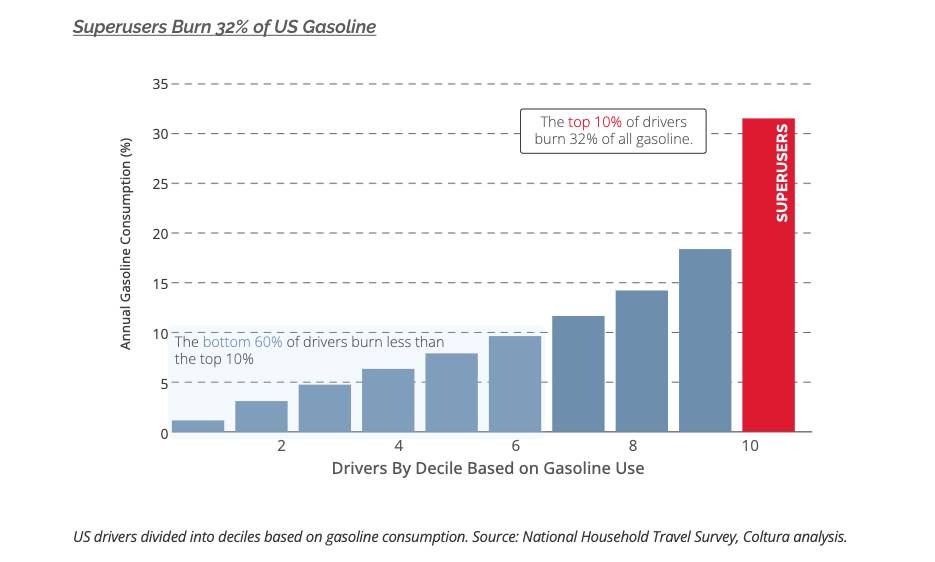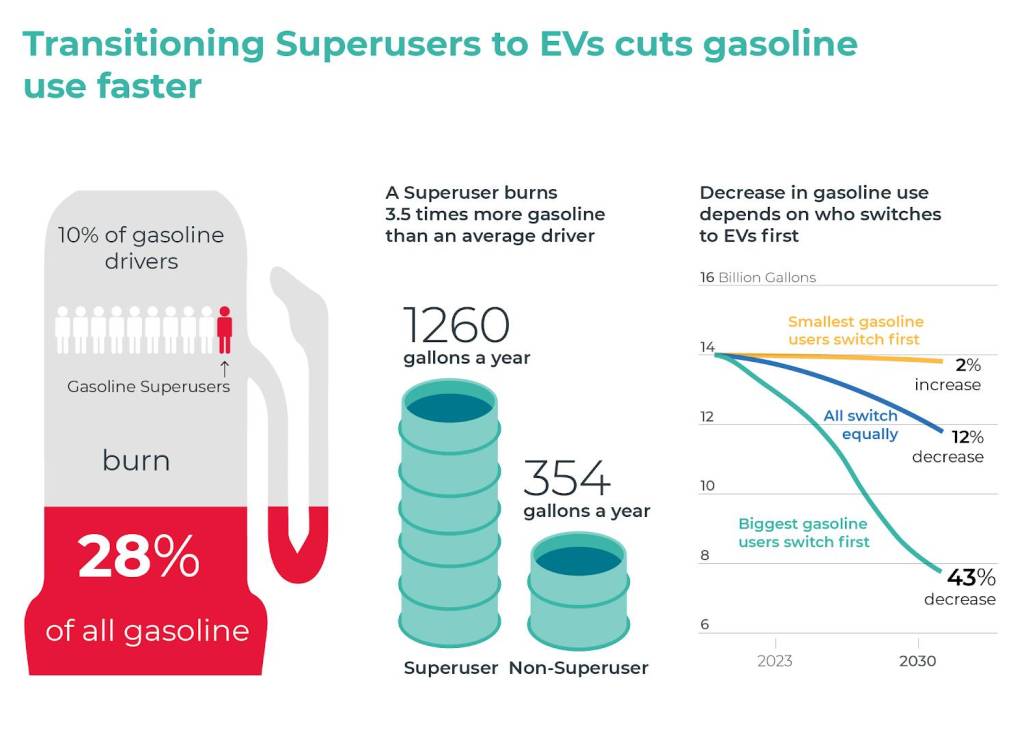EV policy will achieve the greatest climate benefit by prioritizing those that use the most gasoline, according to the advocacy group Coltura.
The group recently released a new study building on findings published in 2021 which found that one in 10 drivers burn nearly a third of U.S. gasoline. Coltura coined the term gasoline “superusers” to describe these drivers, and it continues to argue that they should be the focus of policies aimed at promoting EV use.
Such a narrowing of focus would provide an outsized climate benefit, while also benefiting gasoline superusers themselves, according to the study.

Gasoline superusers and overall gasoline consumption (via Coltura)
In California, which is set to ban sales of new internal-combustion vehicles (other than certain plug-in hybrids) by 2035, reducing emissions by 50% would require nine million EVs on the road if gasoline superusers switched first, compared to 24 million if the superusers switched last, according to the study.
While California leads the nation in EVs, 95% of the vehicles on its roads remain powered by gasoline, according to the study, so the state’s gasoline consumption figures mirror those nationwide.
That also means a large number of what Coltura calls “gasoline-burdened families” that could greatly benefit from a switch to EVs. Of the California gasoline superuser households identified in the study, 56% are below the median household income—and paying a lot to drive their gasoline vehicles.

Gasoline superusers and overall gasoline consumption (via Coltura)
Gasoline superusers spend an average $500 a month on fuel and $300 a month on vehicle maintenance and repairs, according to the study. Switching to an EV could save significant costs in fuel alone. A 2022 study found that gasoline vehicles can cost up to six times more to fuel than EVs cost to charge.
Whether any real policy is made based on the concept of gasoline superusers remains to be seen, but it has been proposed. California is considering offering an incentive that would be calculated around the applicant’s gasoline use, and Washington State has already also attempted to inform its EV policy around this.

